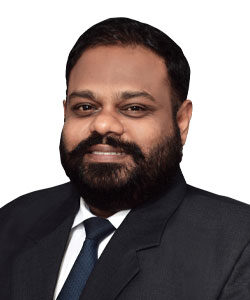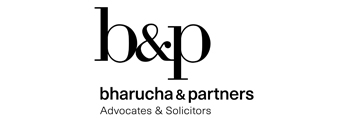Patel Engineering Limited secured three arbitral awards against North Eastern Electrical Corporation Limited (NEECO) in respect of a project in Meghalaya. NEECO unsuccessfully challenged the awards under section 34 of the Arbitration and Conciliation Act, 1996 (act), and thereafter appealed to the high court. The high court set aside the awards, and the Supreme Court dismissed petitions brought by Patel Engineering challenging the high court’s ruling.
Patel Engineering filed unsuccessful petitions for review with the high court on the grounds that the previous judgment of that court contained an error apparent on the face of the record in that the court had not taken into consideration the amendments made to the act by the Arbitration and Conciliation (Amendment Act), 2015.

Partner
Bharucha & Partners
Patel again filed petitions with the Supreme Court. The Issue in the case of Patel Engineering Ltd v North Eastern Electric Power Corporation Limited was whether the award was perverse, or so irrational that it should be set aside on the grounds of patent illegality.
Following its judgment in the BCCI case in 2018, the court ruled that the 2015 amendments applied and that patent illegality, was sufficient grounds to set aside the domestic awards. The Supreme Court then had to decide whether the high court had committed an error apparent on the face of the record by relying on judgments passed prior to the 2015 amendment.
In its judgment in Saw Pipes Ltd in 2003, the Supreme Court widened the interpretation of the concept of public policy in the act and held that an award contrary to substantive provisions of law, or the act, or the terms of a contract would be patently illegal. In its judgment in Associate Builders in 2014, the court held that an award that construed the terms of a contract in a way that no fair-minded or reasonable person would do, is patently illegal and could be set aside on the grounds of being against public policy.

Partner
Bharucha & Partners
The 246th Report of the Law Commission in 2014 recommended the insertion of patent illegality as grounds to set aside a domestic award to provide greater redress. It would also reverse the unintended consequences of the Saw Pipes Ltd case, when applied to international commercial and foreign arbitral awards, something which is not in keeping with the provisions of the act. Section 34(2A) was therefore inserted with a proviso to clarify that re-evaluation of evidence is not permissible and that an erroneous application of law does not constitute patent illegality and does not permit the award to be set aside.
In Ssangyong Engineering & Construction Co Ltd v NHAI (2019), the court ruled that the expansive interpretation of public policy in the cases of Saw Pipes Ltd and Western Geco International Ltd (2014), had been overruled, and new grounds for challenge under section 34 of the act, patent illegality, adopted. The court followed the ruling in Associate Builders and held that the construction of the terms of a contract was primarily the duty of the arbitrator. Unless the arbitrator’s view could not have been taken by any fair-minded or reasonable person, the award could not be set aside on the grounds of patent illegality.
In the Patel Engineering case, the arbitrator had taken into account irrelevant factors and had ignored vital clauses of the tender document. The judgment in the challenge under Section 34 of the act was also open to similar criticism. On the other hand, the high court had referred to the judgment in Associate Builders and had reversed the awards on the grounds of irrationality and perversity. The high court noted that the effect of the awards would result in NEECO paying almost ₹10 billion (US$133 million) to Patel Engineering, resulting in unjust enrichment. The high court had noted that unjust enrichment of a party, at a cost to the public exchequer would be against a fundamental policy of Indian law. Although it was not hearing an appeal against the awards themselves, the fact that there existed grounds under section 34(2) warranted interference. The duty of the arbitrator was to interpret the contract in accordance with established rules of interpretation and to follow fundamental policies of Indian law.
The judgment in Associate Builders remains good law even after the 2015 amendment, and the reliance by the high court on that judgment and that in Ssangyong Engineering & Construction Co Ltd to rule that the awards amounted to patent illegality was proper. The Supreme Court found that the high court could not be faulted for setting aside the awards.
Karthik Somasundram and Sneha Jaisingh are partners at Bharucha & Partners.

13th Floor, Free Press House
Free Press Journal Marg
Nariman Point
Mumbai – 400 021
India
Contact details
Tel: +91 22 2289 9300 / 6132 3900
Fax: +91 22 2282 3900 / 6633 3900
Email: sr.partner@bharucha.in



























